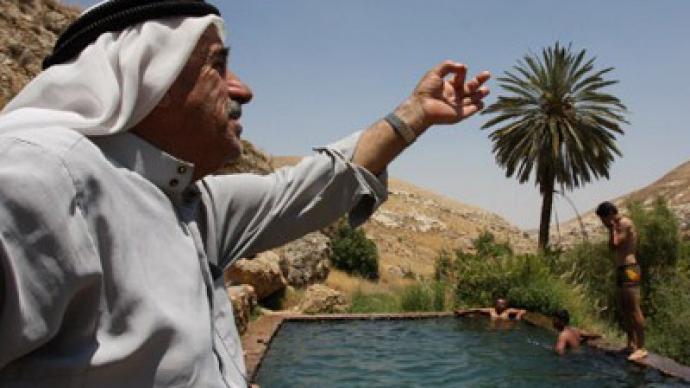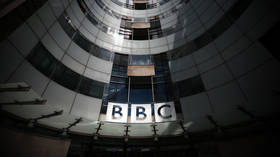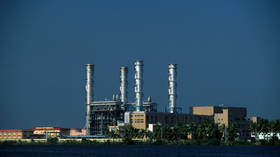Israeli settlers grab West Bank water springs – UN report

Israeli settlers have taken over dozens of natural water springs in the West Bank, limiting or barring Palestinians from access to much-needed fresh water, according to the UN report. Israelis deny that the access has been banned.
The UN Office for the Coordination of Humanitarian Affairs (OCHA) said it had surveyed 530 springs in the West Bank to find out that at least 30, mostly in areas where Israel retains military control, were taken over by the settlers. With Palestinians unable to access them at all."Palestinians have been deterred from accessing the springs by acts of intimidation, threats and violence perpetrated by Israeli settlers," it says.The report added that Palestinians currently have limited access to 26 other springs where settlers had moved in and threatened to take control. Springs remain the single largest water source for irrigation and a significant source for watering livestock in the area, with some also providing water for domestic consumption in areas not connected to pipelines.The document concludes the loss of access to springs and adjacent land reduced the income of affected farmers, who either stop cultivating the land or face a reduction in the productivity of their crops.However, it adds that in most cases when settlers limited the Palestinians access to springs, they had turned them into tourist sites with some being used for swimming. Most of the springs are located on private Palestinian land. "Settlers have developed 40 springs as tourist sites, deployed picnic tables and benches and given them Hebrew names. It is generating employment and revenue for the settlements and it is a way of promoting or advertising settlements as a fun place," Reuters quotes OCHA researcher Yehezkel Lein as saying.The Israeli Regional Council insists it develops, restores and preserves natural and heritage sites. “As part of this process several murky springs were transformed into accessible sites for the public. In some cases an irrigation system was built for livestock. The springs are now active tourist sites serving both Palestinians and Jews … after dozens of years of neglect," the council’s message goes as quoted by the Haaretz Newspaper.The Civil Administration confirmed that everyone has the right to approach springs in public areas. If access to any individual is being denied by any person, an individual should submit a complaint to the police.Still, OCHA states the takeover of springs was an extension of settlement activity in the West Bank, which it pointed out is illegal under international law.The Office called on Israel to stop the expansion of settlements, "restore Palestinian access to the water springs taken over by settlers," and to "conduct effective investigations into cases of settler violence and trespass."The Israeli settlements in the West Bank have been subject to multiple conflicts with Palestinians since the war of 1967. Israel cites historical and Biblical links to the West Bank and says the status of settlements should be decided in peace negotiations. Palestinians say that the settlements deny them a long-desired independent state along with the Hamas-controlled Gaza Strip. The International Court of Justice (ICJ), the highest UN legal body for disputes, considered the settlements illegal.














